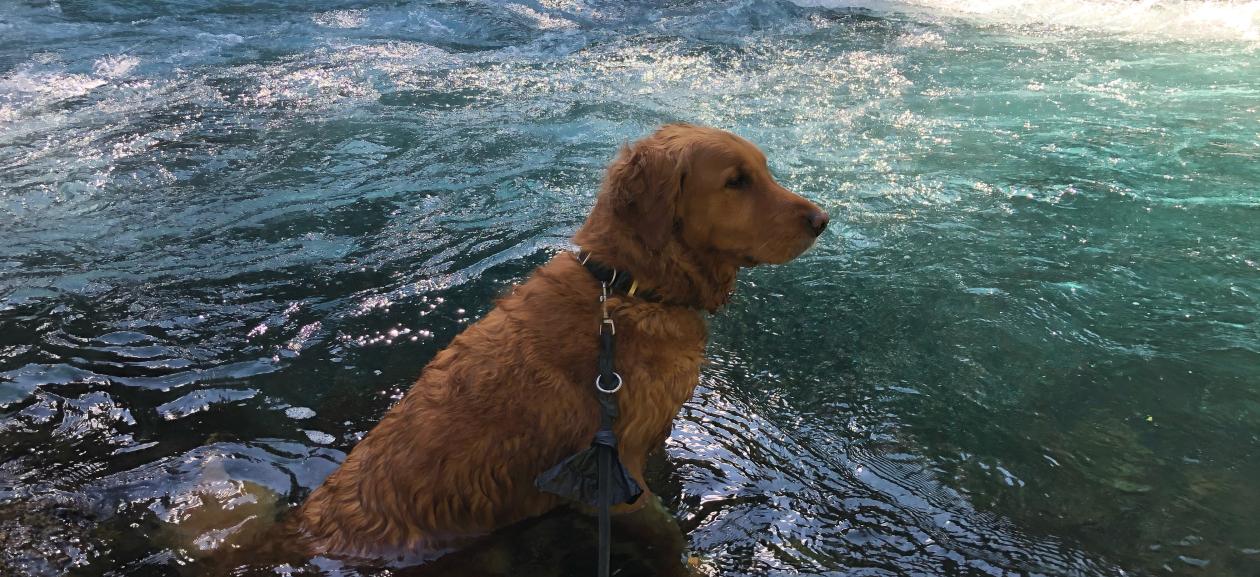
Paws on the Trail: Hiking Safely and Happily with Your Adventure-Loving Pet
Ready to hit the trail with your energetic, nature-loving pet? Hiking with your companion can be an incredibly rewarding way to explore the outdoors together, filled with fresh air, beautiful views, and plenty of tail wags. But before you lace up your boots and clip on the leash, it’s important to prepare for a safe and enjoyable journey. Let’s dive into the essentials to keep your adventure fun—and safe—for both of you.
Prepare Before You Go
Before venturing out, make sure both you and your pet are ready for the trail:
- Choose the Right Trail: Not all trails are pet-friendly. Research ahead of time to find pet-allowed trails, and check for any restrictions, closures, or wildlife advisories.
- Know Your Pet’s Limits: Consider your pet’s age, breed, and fitness level. High-energy animals might handle steep terrain better, while senior pets or certain species may prefer shorter, shaded trails. Choose a route that matches their abilities.
- Health and Wellness Check: Make sure your pet is up to date on vaccinations and protected with flea and tick preventatives. If your pet has a health condition, consult your veterinarian before heading out.
Don’t Forget These Trail Essentials
Pack like a pro to keep your pet comfortable and safe:
- Leash and Harness: Use a sturdy, non-retractable leash and a well-fitted harness to help guide your pet and prevent injuries. Many trails require pets to be leashed at all times.
- Water and Bowl: Pets can overheat quickly, especially on warm days. Bring plenty of fresh water and a collapsible bowl so you can offer frequent hydration breaks.
- Snacks and Treats: Pack lightweight treats for motivation and positive reinforcement along the way.
- First Aid Kit: Include items like bandages, antiseptic wipes, and any medications your pet might need. Check out our blog post on building a pet first aid kit for a complete list.
Practice Trail Etiquette and Safety
Help everyone enjoy the trail by following a few key guidelines:
- Keep Your Pet Leashed: Even friendly pets can startle other hikers, approach wildlife, or get injured. A leash keeps them close and safe.
- Yield to Others: Step aside for hikers, bikers, or horses, and keep your pet calmly at your side while they pass.
- Watch for Fatigue: Pets can’t always tell you when they’re tired. Watch for signs like excessive panting, slowing down, or reluctance to continue. Take breaks in the shade and cut the hike short if needed.
- Avoid Wildlife Encounters: Stay alert and steer clear of wildlife. Keep your pet away from animals, burrows, or nesting areas to prevent dangerous encounters.
Protect Those Paws
Rough terrain, hot surfaces, or sharp rocks can cause painful injuries. Here’s how to protect those hard-working paws:
- Inspect Before and After: Check your pet’s paws for cuts, debris, or swelling before and after the hike.
- Use Paw Balm or Booties: Pet-safe paw balm can help prevent cracks or irritation. Booties can offer added protection, especially on hot, rocky, or icy trails.
Leave No Trace
Help preserve our natural spaces for future visitors—human and animal alike:
- Clean Up Waste: Always pack out your pet’s waste using biodegradable bags. If trash bins aren’t available, carry it back with you.
- Stay on Marked Trails: Stick to designated paths to protect plants and wildlife habitats. Avoid letting your pet wander off-trail.
Know When to Seek Help
Emergencies can happen fast. If your pet shows signs of illness or injury, such as vomiting, diarrhea, limping, sudden behavior changes, or suspected toxin ingestion, take action immediately.
- For Poison Concerns: Call the ASPCA Animal Poison Control Center at 1-888-426-4435.
- For Emergency Care: Contact your regular veterinarian or call DoveLewis at 503-228-7281. Our emergency team is available 24/7 to help.
Hiking with your pet is a great way to bond and stay active, but safety should always come first. With a little preparation, the right gear, and a sense of adventure, you and your pet can explore the outdoors with confidence. Happy Trails!
Recent Posts
Halloween Pet Safety Tips
Fright night might be fun for humans, but it can be frightfully scary—and even dangerous—for pets. Veterinarians at DoveLewis want to remind pet owners to be mindful of the various ways Halloween can pose a threat to animals.




